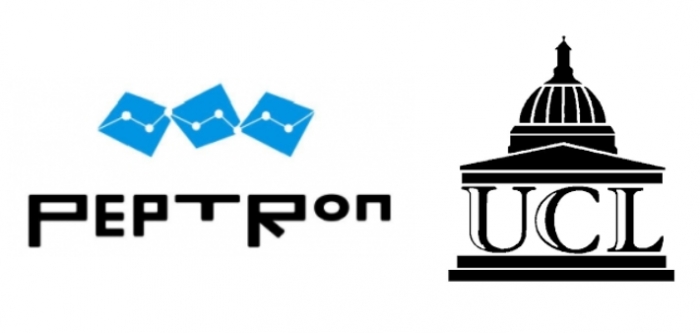기업
Peptron, supplying clinical sample for Parkinson’s disease to UCL in the UK
바이오스펙테이터 Sungmin Kim 기자
In the UK, a total of 700 patients with Parkinson’s disease were treated for 3 years for phase 3 clinical research trial… Domestic study patients were treated for 1 year but as a dose escalation study

Peptron supplies clinical samples to the most advanced GLP-1 class of drugs for Parkinson’s disease. Peptron says on 24th, would supply the clinical samples necessary for investigator clinical trial to proceed, a team of professor Foltynie from The University of College London (UCL) in the UK.
The UK researcher Phase 3 investigator clinical trial will begin in 2019, targeting a total of 700 patients with moderate to severe Parkinson’s disease. In order to confirm with the therapeutic effectiveness of GLP-1 class drugs, extended-release form of exenatide is administered over 3 year period. Clinical results can be confirmed after 5 years if it proceeds as planned.
Phase 2 clinical trial confirmed improvement in exercise with administrating exenatide for 1 year, but there was no significant difference in cognitive function; thus, the purpose of phase 3 trial is to confirm its clear therapeutic effectiveness. And it is estimated that a period of about three years is required to validate the neuroprotective effect in the brain of Parkinson’s disease patients.
In August, Foltynie team received a lot of attention by publishing a study in ‘Lancet’, a global clinical journal, and presenting fundamental therapeutic efficacy in Parkinson’s patients. Current Parkinson’s medications relieve symptoms only at the time of dosing, but the Foltynie team confirmed improved motor performance by injecting the existing diabetic drug exenatide into the patient. It was significant in that it was the first study showing the possibility of treating Parkinson’s disease.
The former drug used in the UK clinical trial 2 is AstraZeneca’s Bydureon. Bydureon is the first generation exenatide used for diabetes. However, Peptron has a patent to use GLP-1 class drugs for degenerative brain diseases treatment. Possessing commercialization rights of GLP-1 for above uses, Peptron directly supplies phase 3 clinical trial sample at the request of professor Foltynie.
Peptron is developing PT 302, a sustained/extended release form of exenatide. PT 302 is an exenatide administered once a week or once every two weeks. It uses a ‘SmartDepot’, a drug-persistent technology of Peptron, and has a different duration depending on the dose. Peptron will supply the type 1 PT302 to Foltynie team.
Peptron plans to complete a GMP facility exclusive for drugs with persistent efficacy by the end of this year. Clinical samples are expected to be available from April to June of next year. Once the clinical sample is available, Peptron will undergo phase 2 clinical trail in Korea, independent of Professor Foltynie. The phase 2 clinical trail in Korea is planned to administer to 80 patients with Parkinson’s disease for one year. This study is different in part of dose escalating from 2 mg to 4 mg.
Kim Dong-Suk, a Peptron researcher, said, “Peptron will further process the clinical trial in a short period of time and receive approval for its performance improvement. And there is a potential to become a ‘first-in-class’ drug in Parkinson’s treatment with a plan to accelerate commercialization.”
In the global market, interest in GLP-1 class drugs has increased and the contents of patents have been strengthened. Dr. Kim has filed the second patent together with US National Institutes of Health (NIH) and said, “Latecomers will have more difficulty in commercializing the Extended/Sustained release form of GLP-1 class drugs in degenerative brain diseases”.
In 2014, Peptron acquired a worldwide exclusive license from Professor Nigel Greig’s patent while collaborating with US NIH for the Degenerative Brain Disease under Cooperative Research and Development Agreement (CRADA). Peptron has acquired a worldwide exclusive license to treat with the GLP-1 family of drugs for Parkinson’s disease and neurodegenerative disease (NDD), including Alzheimer’s disease.



















